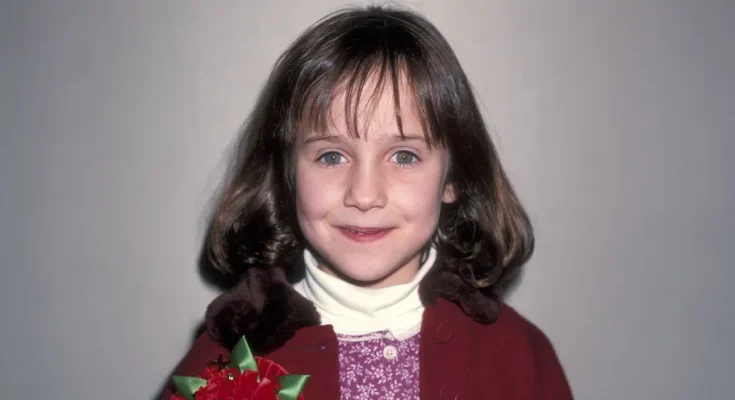- Matilda” star Mara Wilson surprised many by leaving Hollywood at a young age due to the harsh beauty standards.
- She opened up about her personal struggles, including body dysmorphia, obsessive-compulsive disorder, and the loss of her mother.
- Find out what Wilson is doing now and how her perspective has shifted since leaving the spotlight.
Many fantasy-comedy fans remember Mara Wilson, the adorable young actress, who stole hearts in beloved films like “Matilda” and “Mrs. Doubtfire.” Her early success on screen was incredible but she made a surprising decision to step away from Hollywood at a young age.
Wilson found herself struggling with the industry’s harsh beauty standards, leading her to leave acting behind and transition into a more private life. Here’s what happened to the stunning actress after she left the limelight.
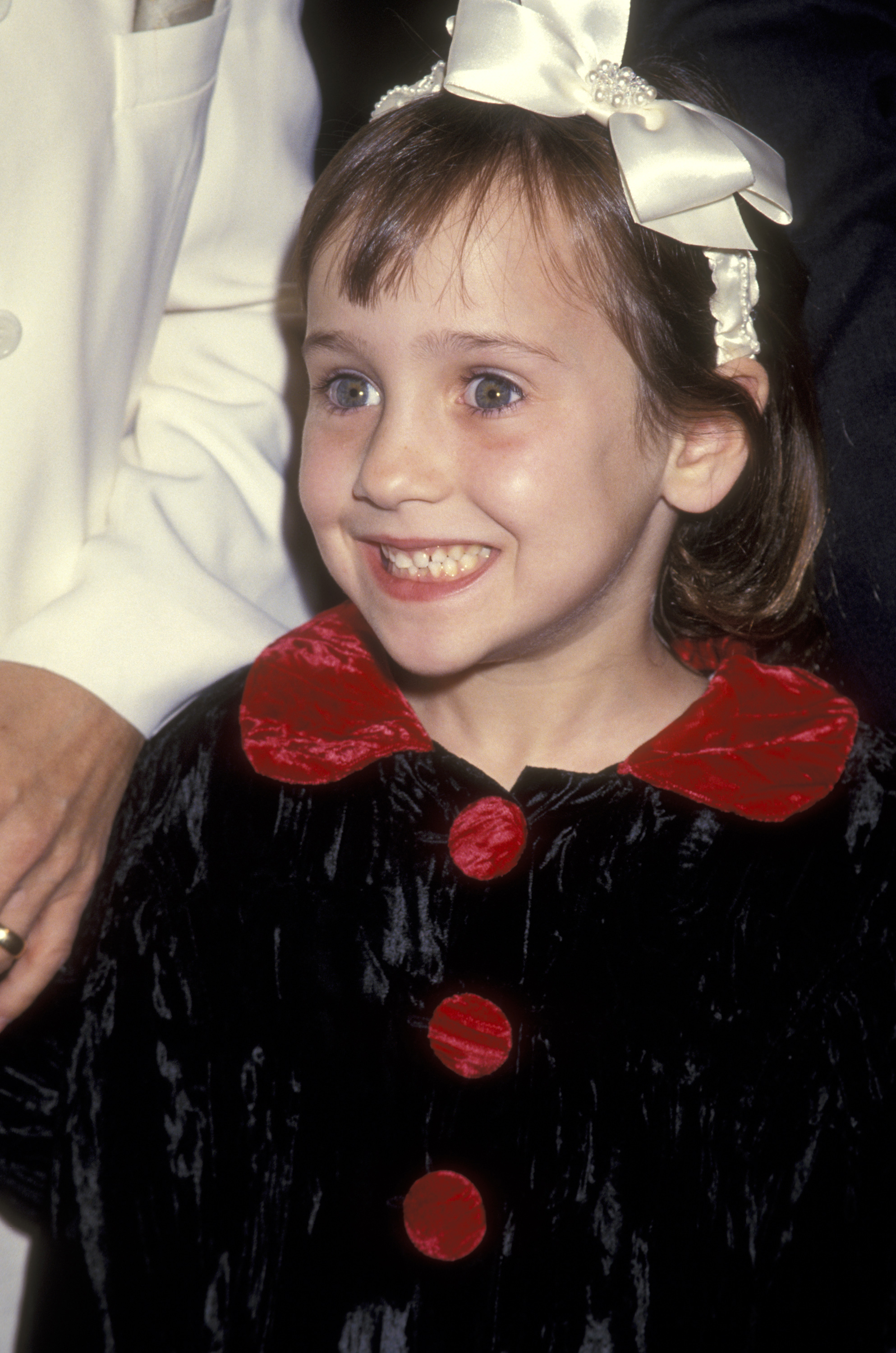
Mara Wilson attends the “Mrs. Doubtfire” premiere in Beverly Hills, California, on November 22, 1993 | Source: Getty Images
Mara Wilson’s career began when she was just five years old. She was inspired by her eldest brother, Daniel Ben Wilson, who had started acting in television commercials. Eager to follow in his footsteps, young Wilson was determined to give acting a try.
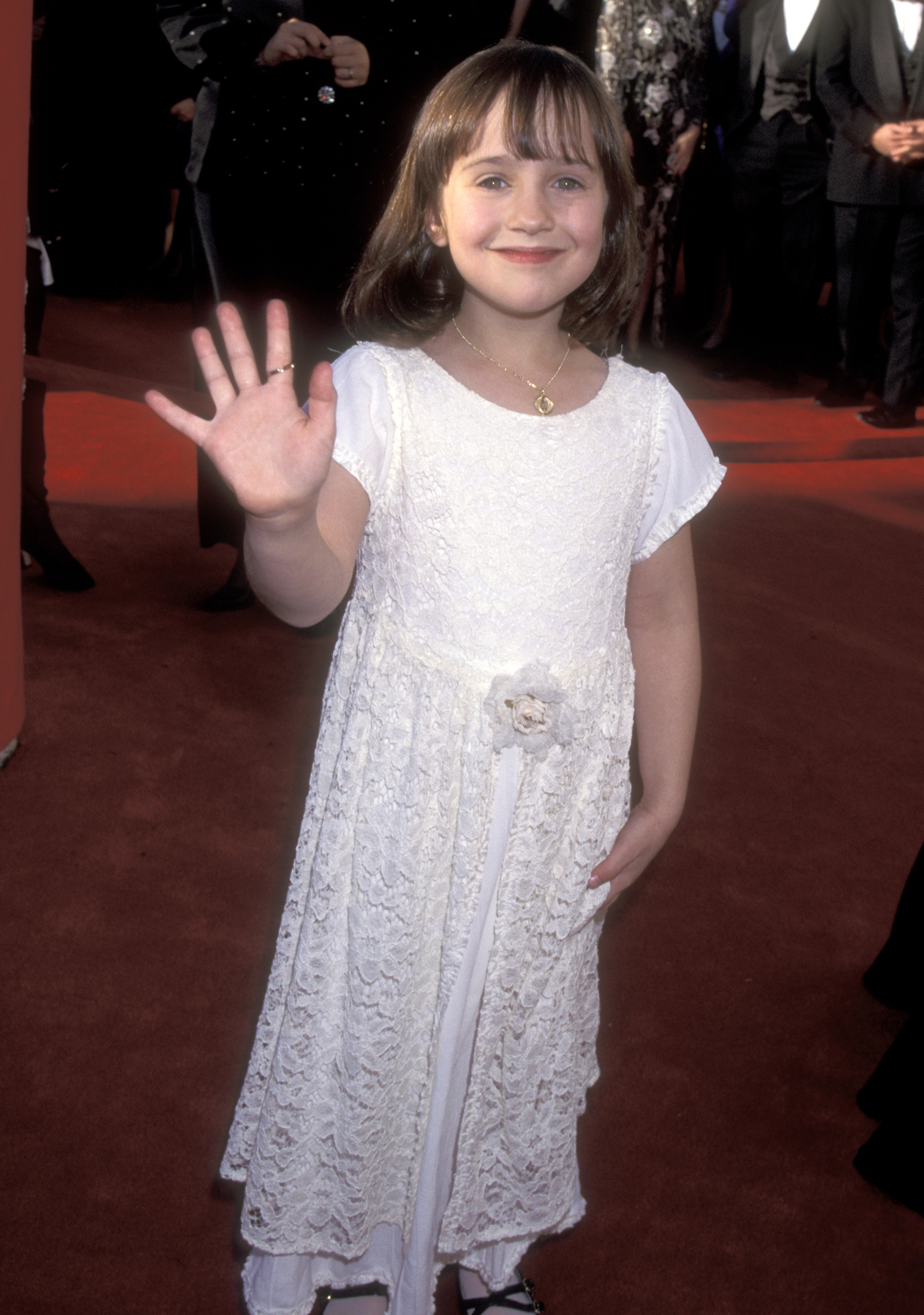
Mara Wilson attends the 67th Annual Academy Awards at Shrine Auditorium in Los Angeles, California, on March 27, 1995 | Source: Getty Images
Initially, her parents were hesitant and refused to let her pursue this path. However, her unwavering persistence eventually won them over, and they reluctantly agreed to let her explore the world of acting.
Soon after, Wilson began appearing in a series of commercials, including those for Texaco and Bank of America, marking the beginning of her journey in show business.
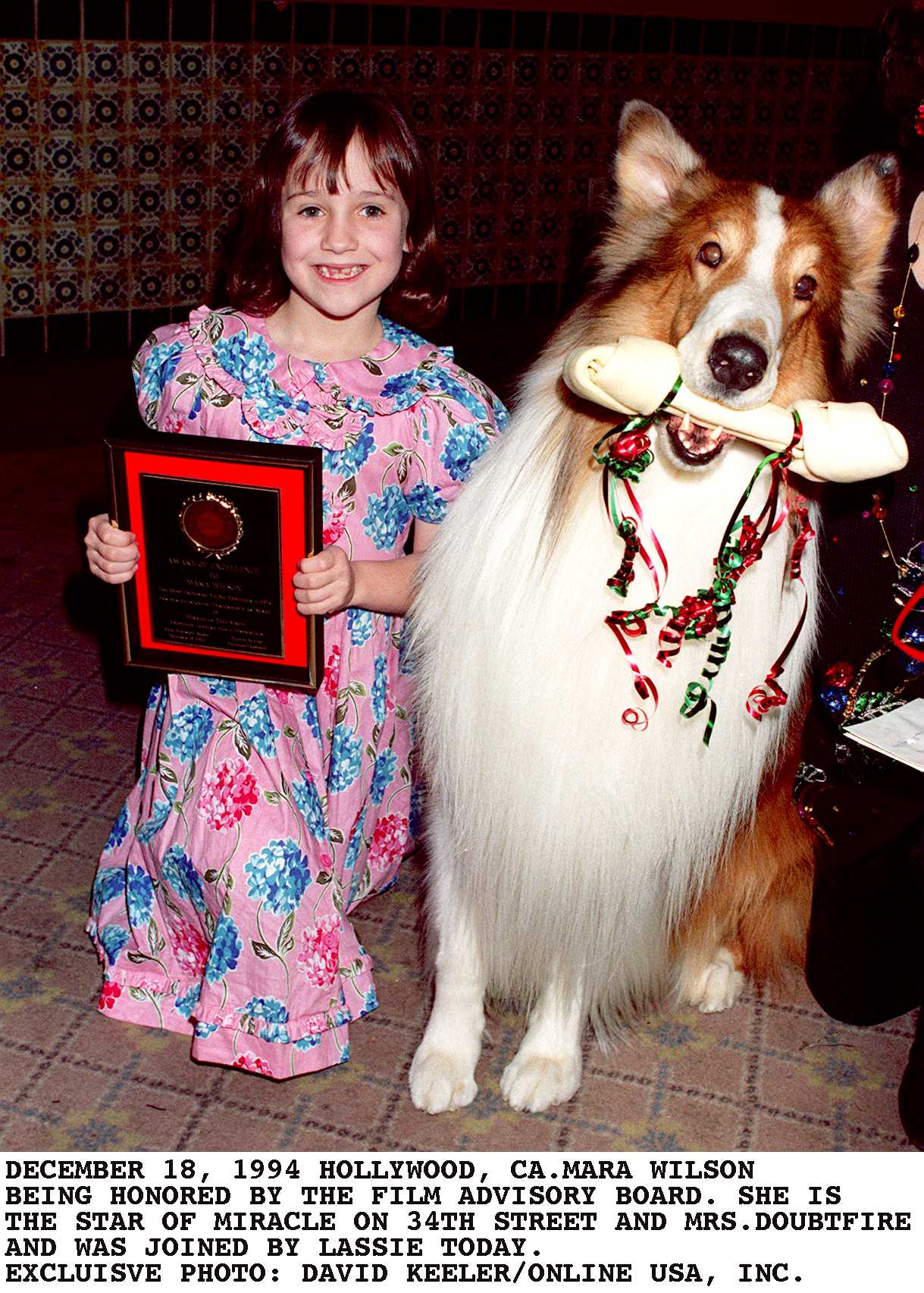
Mara Wilson and Lassie being honored by the Film Advisory Board in Los Angeles on December 14, 1994. | Source: Getty Images
Aside from “Matilda” and “Mrs. Doubtfire,” she starred in other films such as “Miracle on The 34th,” “Thomas and the Magic Railroad,” and “A Time to Heal.”
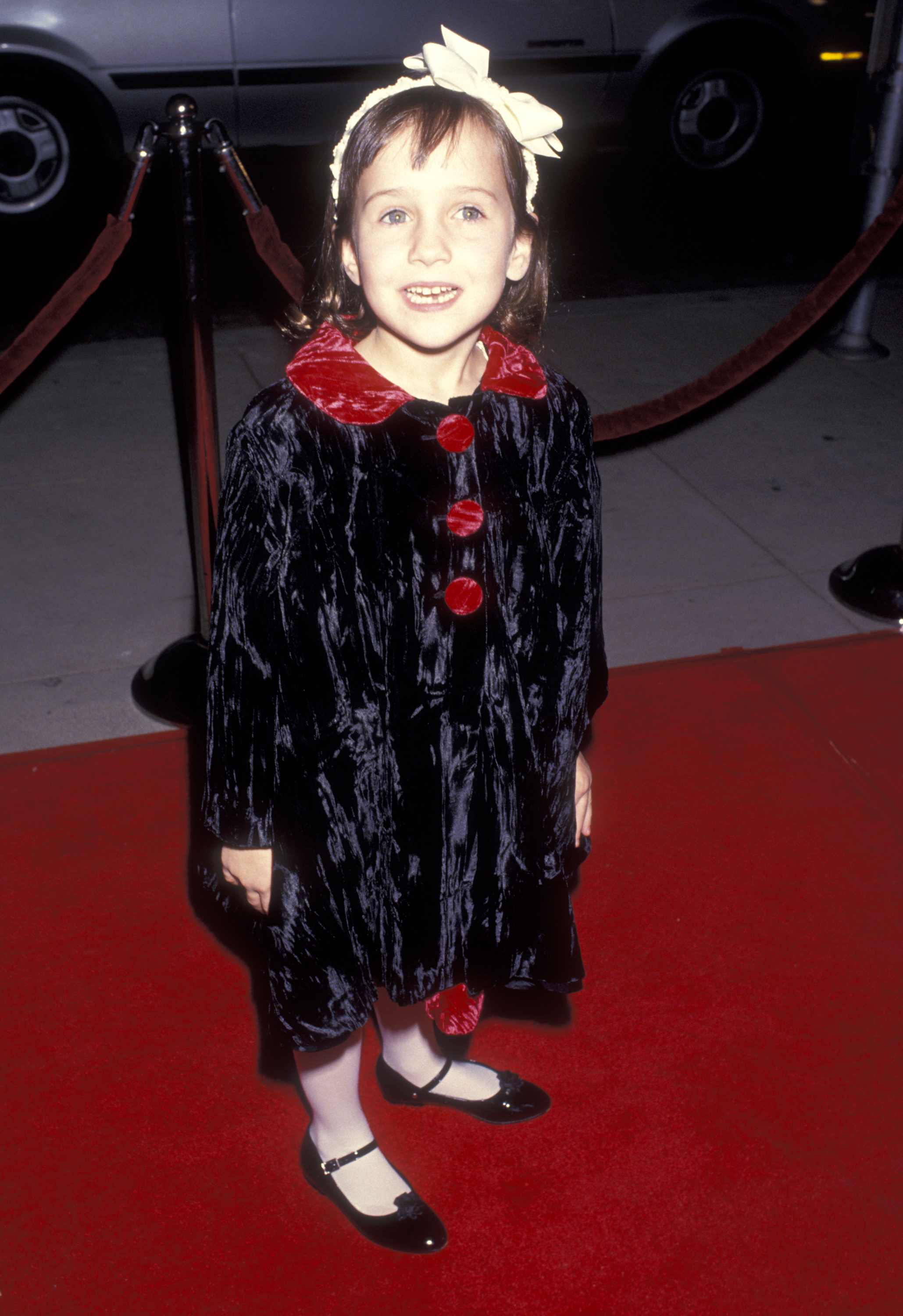
Mara Wilson attends the “Mrs. Doubtfire” premiere in Beverly Hills, California, on November 22, 1993 | Source: Getty Images
Wilson was only nine when she starred in “Matilda” in 1996. Years later, she shared that she deeply admired Matilda and felt honored to play her. She portrayed the character so well that many people saw her and Matilda as one and the same.
She added that people didn’t know her name but knew her character’s name. “It was hard too because it felt like everybody liked her more than they liked me,” she added.
Nevertheless, the actress said the movie showed how girls can be strong, and also, study and work hard. It also presented the value of teachers and encouraged those who came from difficult families to create their ideal kinhood.
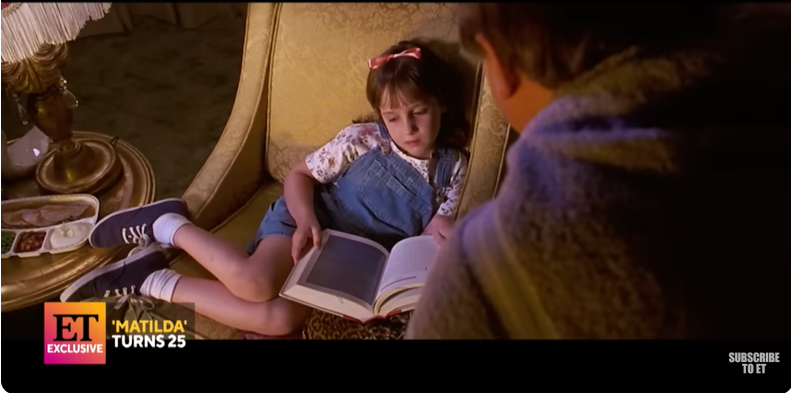
Mara Wilson on “Matilda” from a YouTube video dated August 8, 2021 | Source: Youtube/@EntertainmentTonight
While shooting “Matilda,” Wilson’s mother, Suzie Wilson, was ill. The actress revealed that Danny DeVito and Rhea Perlman, her co-stars, let her stay with them as her mom underwent cancer surgeries in the hospital.
She noted that the two were like an uncle and aunt to her. Wilson described them as very considerate and constantly empathetic. “They felt familial to the end,” she said.
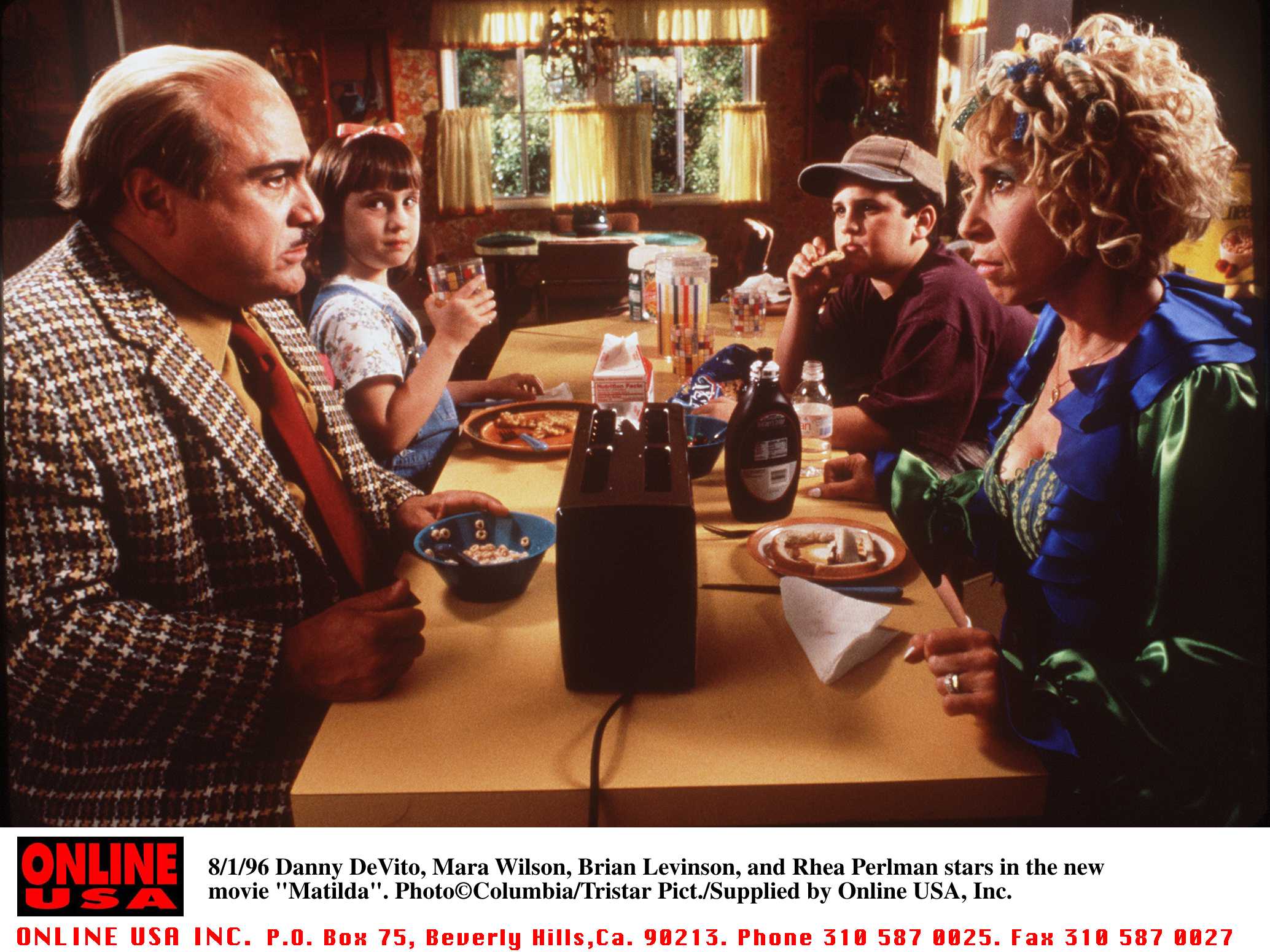
Danny DeVito, Mara Wilson, Brian Levinson, and Rhea Perlman star in the new movie “Matilda” in 1996. | Source: Getty Images
Sadly, the actress eventually lost her mom to breast cancer at the age of nine. Despite this devastating blow, she showed remarkable resilience by pushing ahead with the film. Her strength during such a difficult time left a deep impression on her adult co-stars.
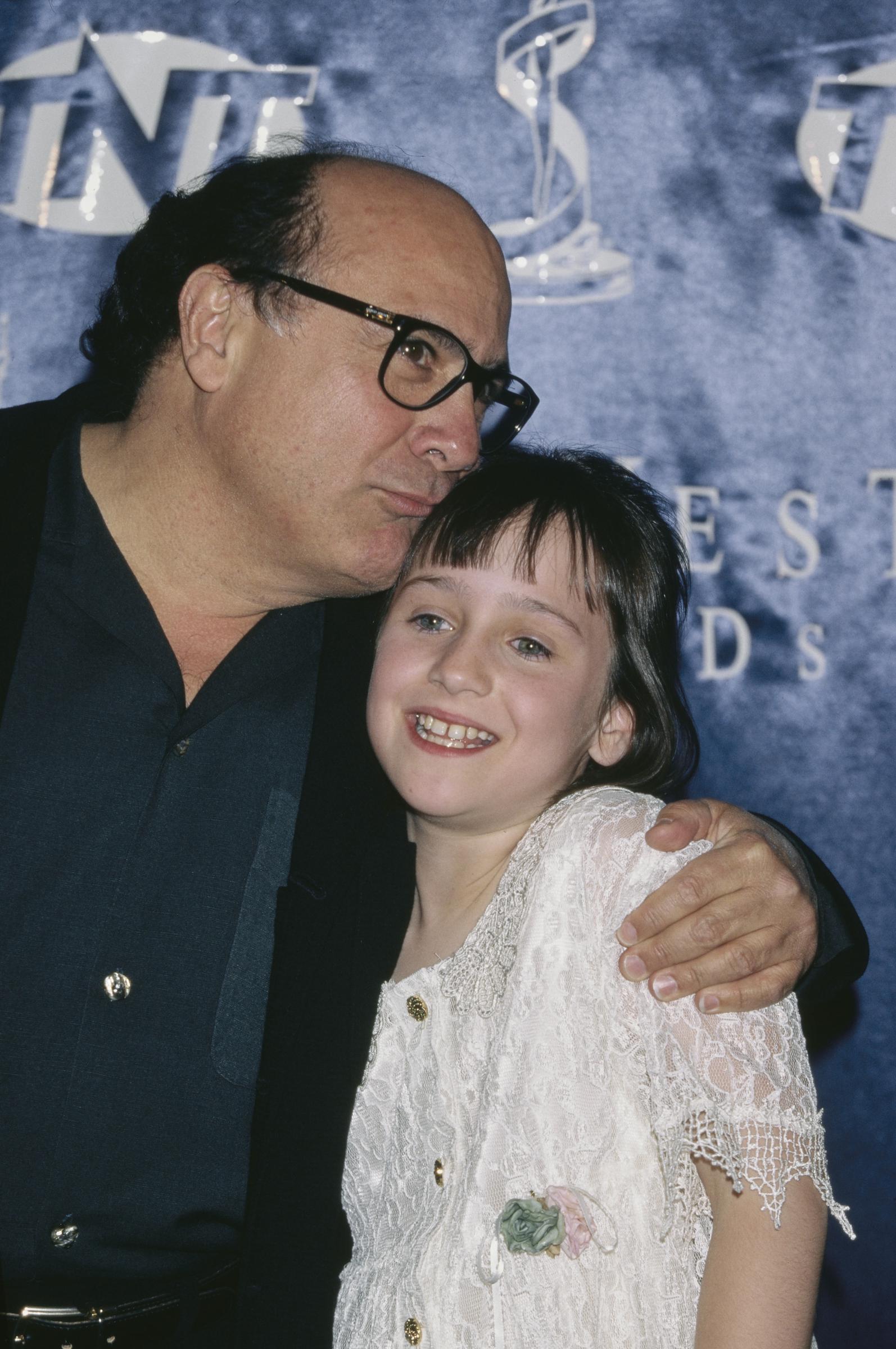
Danny DeVito and Mara Wilson attend and present at the 1997 ShoWest Awards in Las Vegas, Nevada, on March 6, 1997 | Source: Getty Images
However, Wilson went through a hard time after they wrapped shooting as she started having panic attacks. She noted that while filming, she managed to ignore how sick her mom was and the fact that she wasn’t getting better.
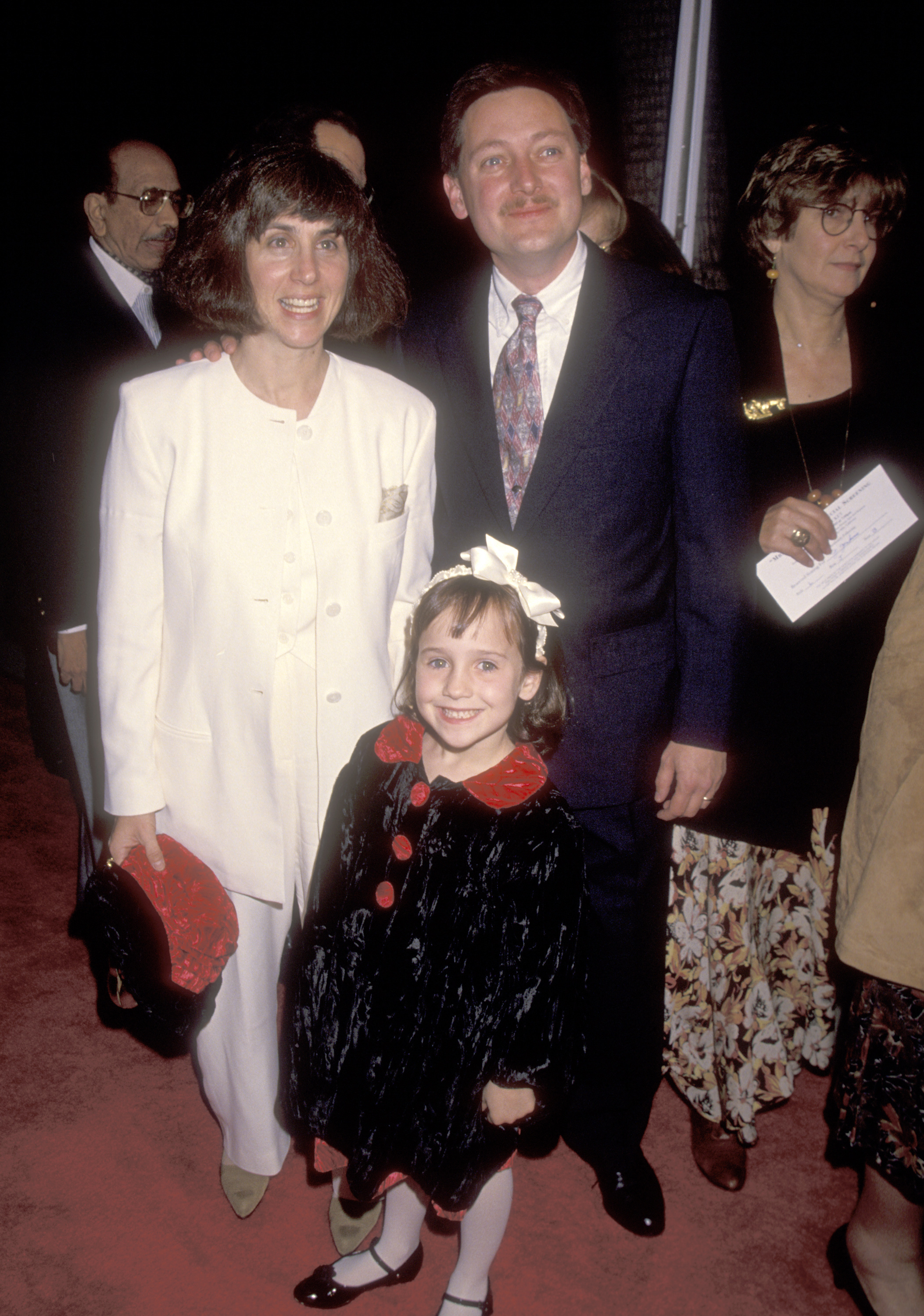
Mara Wilson, Suzie Shapiro, and Michael Wilson attending the “Mrs. Doubtfire” premiere in Beverly Hills, California, on November 22, 1993 | Source: Getty Images
Wilson had to deal with this sadness and grief after the filming ended. She would have panic attacks and develop habits such as washing her hands repeatedly. The actress would also check on her pets to make sure they didn’t escape.
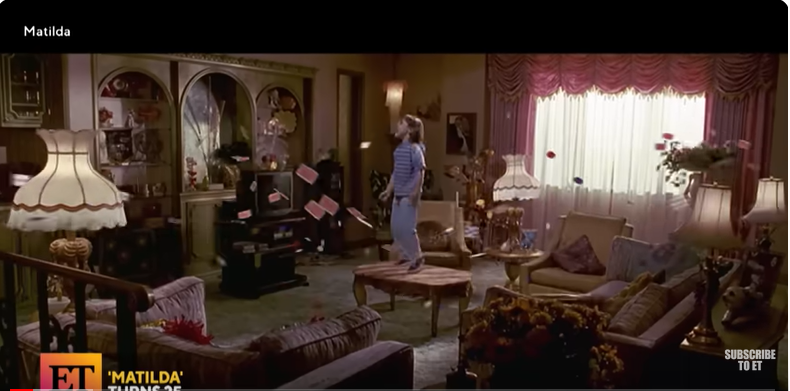
Mara Wilson on “Matilda” from a YouTube video dated August 8, 2021 | Source: Youtube/@EntertainmentTonight
Wilson noted that it was from those moments that she started having vivid signs of obsessive-compulsive disorder (OCD). Being in the public eye intensified her anxiety, as she felt her struggles needed to be kept a secret.
At the time, the conversation around mental illness was more subdued, which made it difficult for her to understand and address what she was going through.
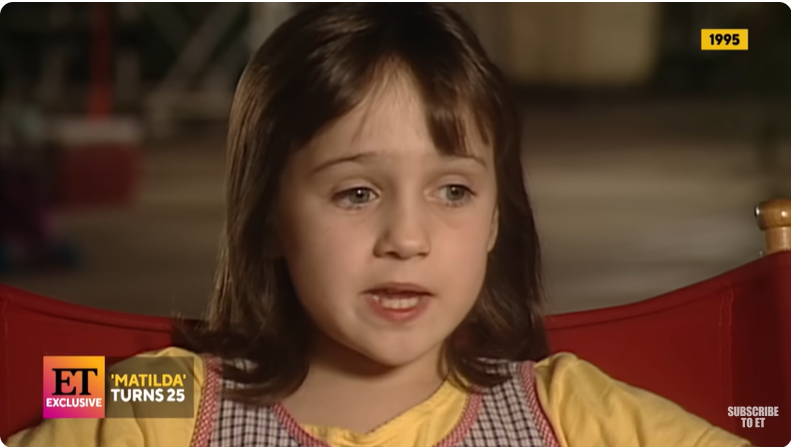
Mara Wilson on “Matilda” from a YouTube video dated August 8, 2021 | Source: Youtube/@EntertainmentTonight
Moreover, the years “Matilda” came out were a blur to Wilson as she went through intense grief. She noted that this was sad to her as she should have been happy and proud of the work she did on the film.
“I’ve looked at, you know, press interviews of myself around that time and it’s just like the light in my eyes is gone. I’m just exhausted and I’m so sad,” she divulged.
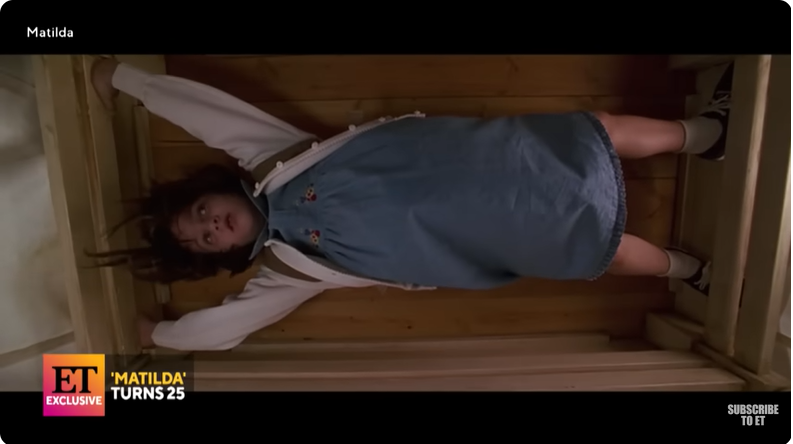
Mara Wilson on “Matilda” from a YouTube video dated August 8, 2021 | Source: Youtube/@EntertainmentTonight
The movie star felt completely lost and unmoored when she lost her mother. “I didn’t really know who I was,” she admitted. Wilson added, “There was who I was before that, and who I was after that. She was like this omnipresent thing in my life.”
Losing her mother felt like an incredible upheaval, as Wilson had always believed she would never lose her. As she grew older, her mother took on an almost mythical quality in her mind, making the loss even more profound.
Wilson described her mom as a tiny but tough woman, who worked hard and tirelessly. “She had like this steely gaze and people were intimidated by her. You know, grown men would be intimidated,” she shared.
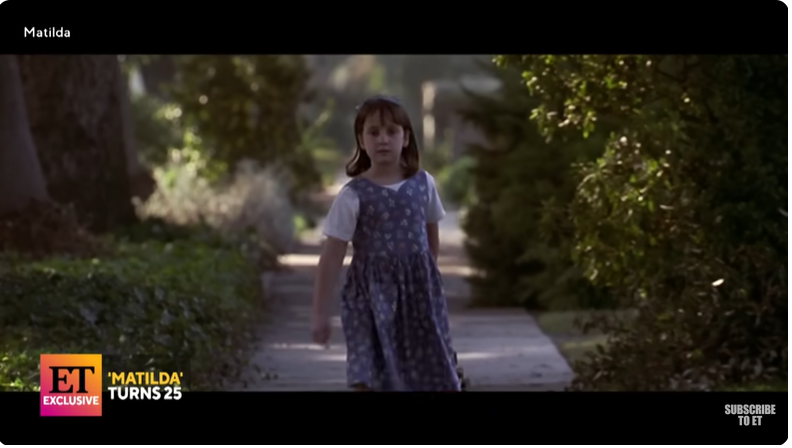
Mara Wilson on “Matilda” from a YouTube video dated August 8, 2021 | Source: Youtube/@EntertainmentTonight
She was also very committed and very passionate and would encourage Wilson to be strong and smart. Wilson revealed that her mother loved Matilda as she represented values she resonated with, such as the courage to question authority.

Mara Wilson on “Matilda” from a YouTube video dated August 8, 2021 | Source: Youtube/@EntertainmentTonight
The actress’s mom loved helping people and worked a lot with charities. She once took in a homeless woman and her daughter until they could find a job and a place to stay. Wilson joked that as much as she was a homemaker, she was never at home as she was out doing charity work.
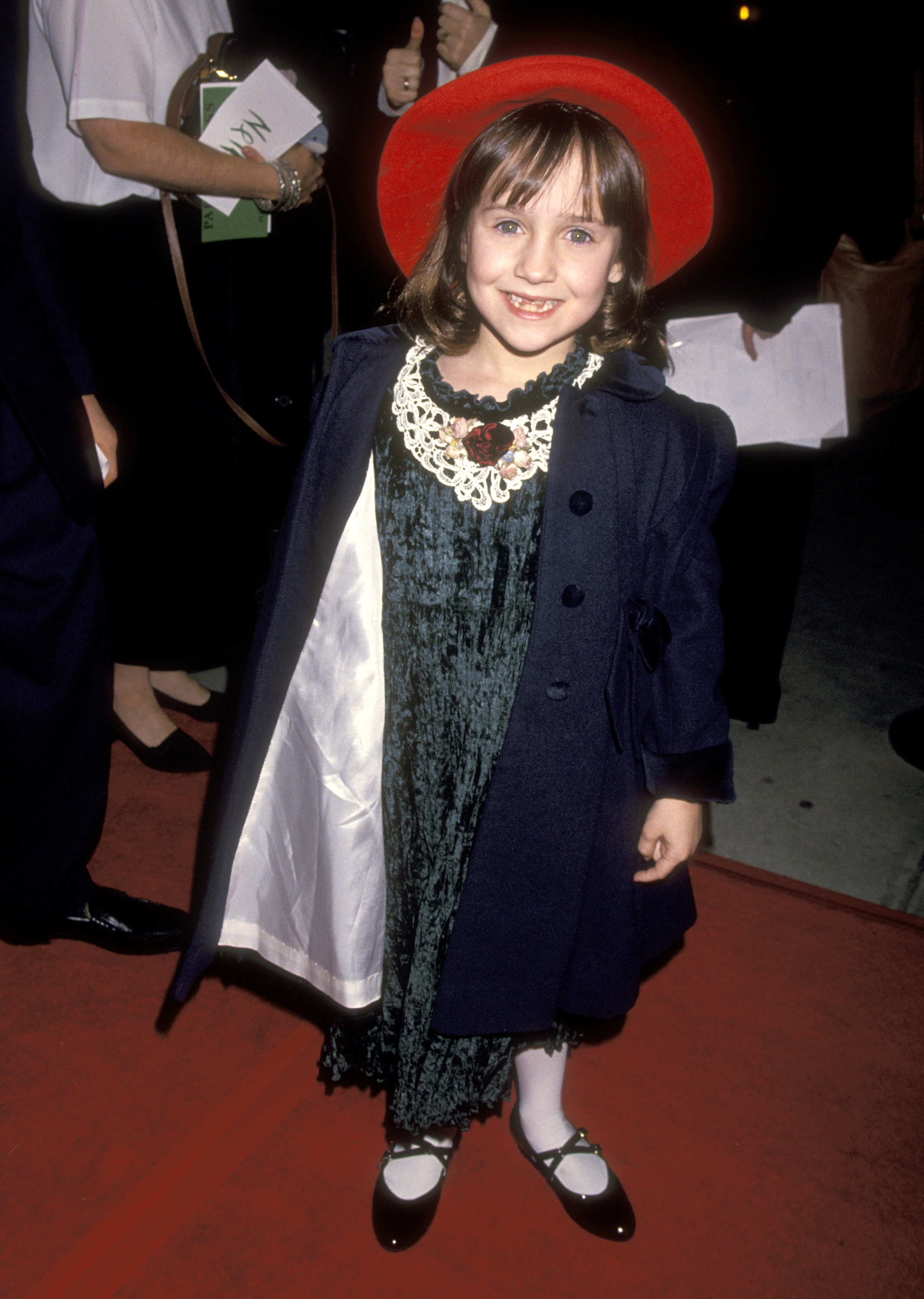
Mara Wilson attends the “Nell” premiere in Beverly Hills, California, on December 13, 1994. | Source: Getty Images
However, Wilson acknowledged that her mother “was also, in her way, a people-pleaser.” She explained that her mother had to care for her family, including her severely mentally ill parents, who also struggled with physical problems.
This responsibility extended to looking after her younger siblings. In her own form of rebellion, her mother moved away and tried to distance herself from the life she had known.
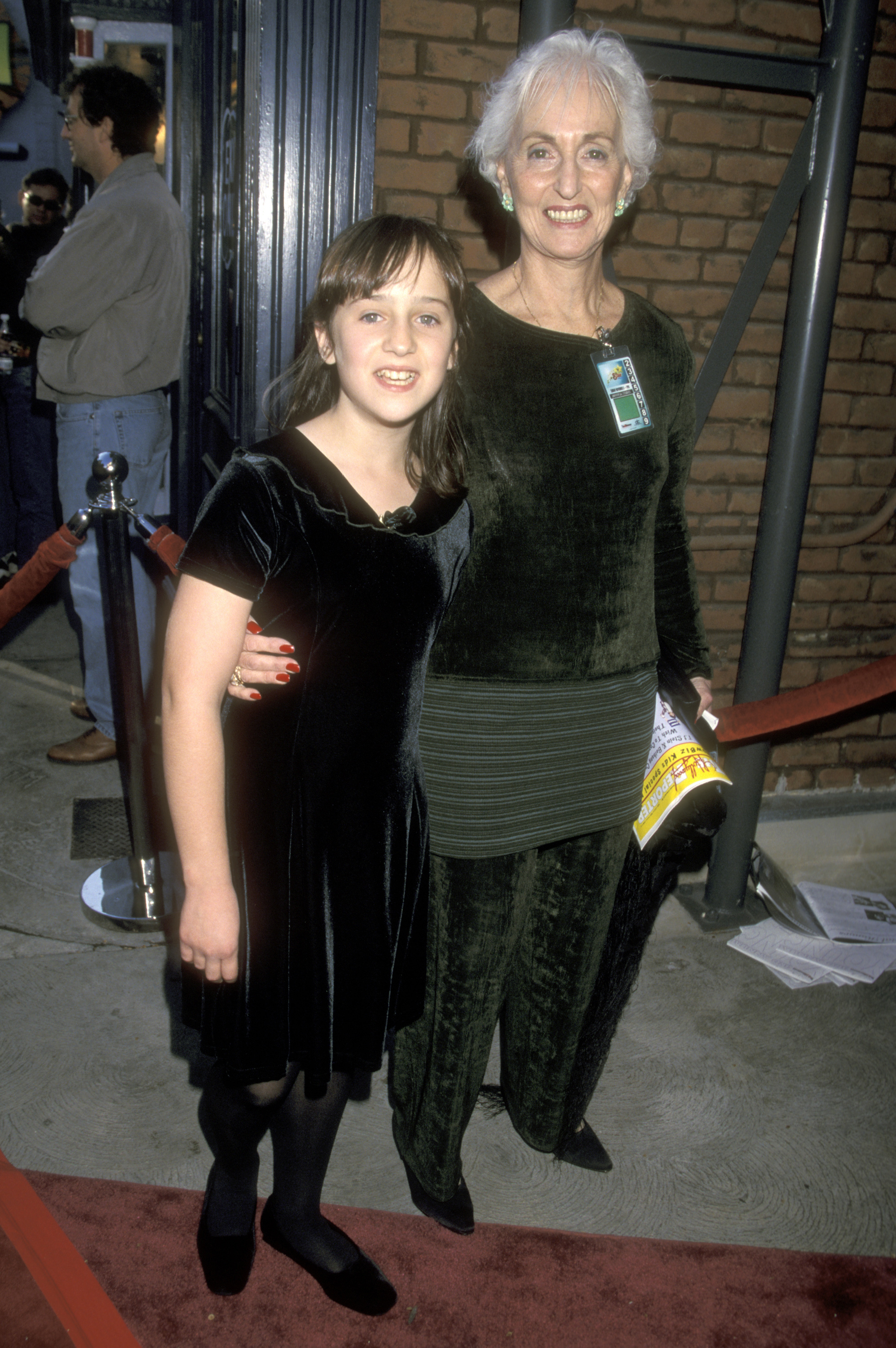
Mara Wilson and her grandmother attend The Hollywood Reporter’s Third Annual YoungStar Awards in Universal City, California, on November 8, 1998 | Source: Getty Images
Just like her mother, Wilson has had struggles in life, especially those that came with her being a child star. She revealed that as much as she was popular as a child, she mostly felt profoundly lonely.
Furthermore, when she was going through puberty, she didn’t want fame at all and sometimes she just wanted to run away and hide from the publicity.
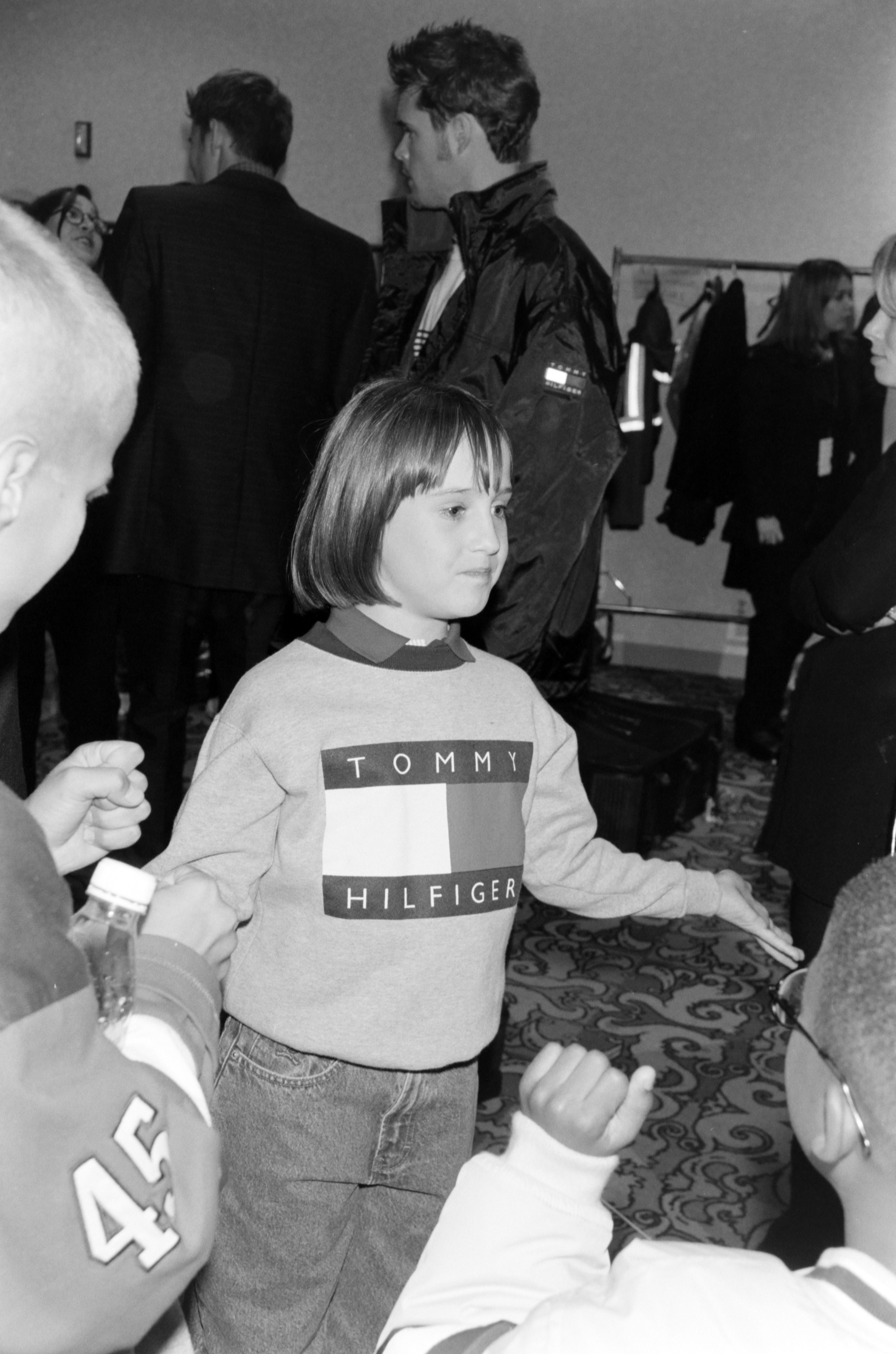
Mara Wilson attends the sixth annual Race to Erase MS benefit, sponsored by Tommy Hilfiger, in Los Angeles, California, on November 14, 1997 | Source: Getty Images
The actress had people commenting on how she looked, including her weight and facial appearance, something she found disturbing. According to Wilson, people would say she was “ugly,” and “useless now,” and that she was no longer cute. “Just saying cruel things and sexualized things about my body too,” she added.
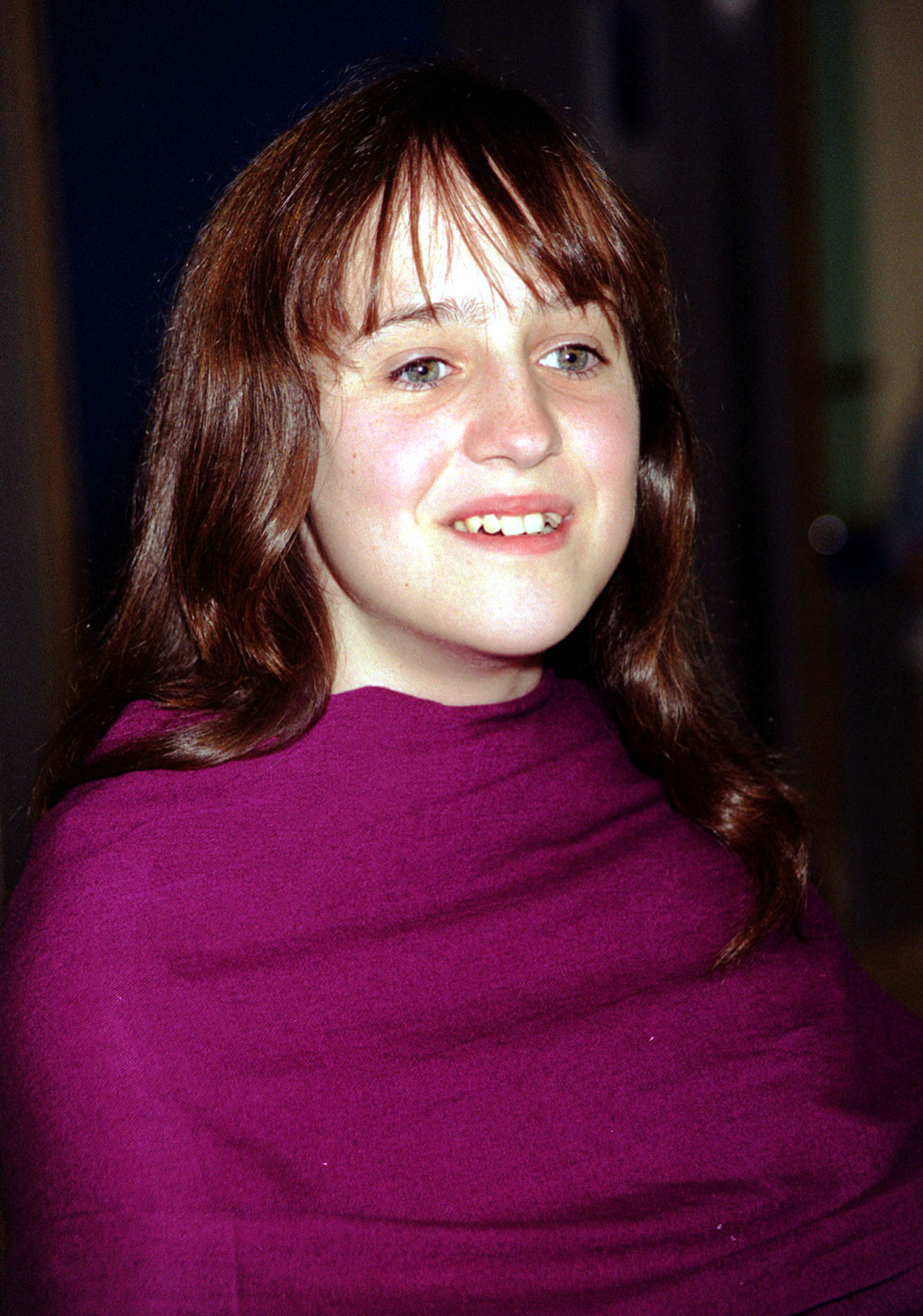
Mara Wilson at the premiere of “Thomas and the Magic Railroad: in London’s Leicester Square, on July 9, 2000 | Source: Getty Images
People started commenting on Wilson’s body when she was a child star, not just as a teenager. Her protective parents thought she would be safe working on children’s movies but she was still sexualized.
“I had people sending me inappropriate letters and posting things about me online. I made the mistake of Googling myself when I was 12 and saw things that I couldn’t unsee,” she explained.
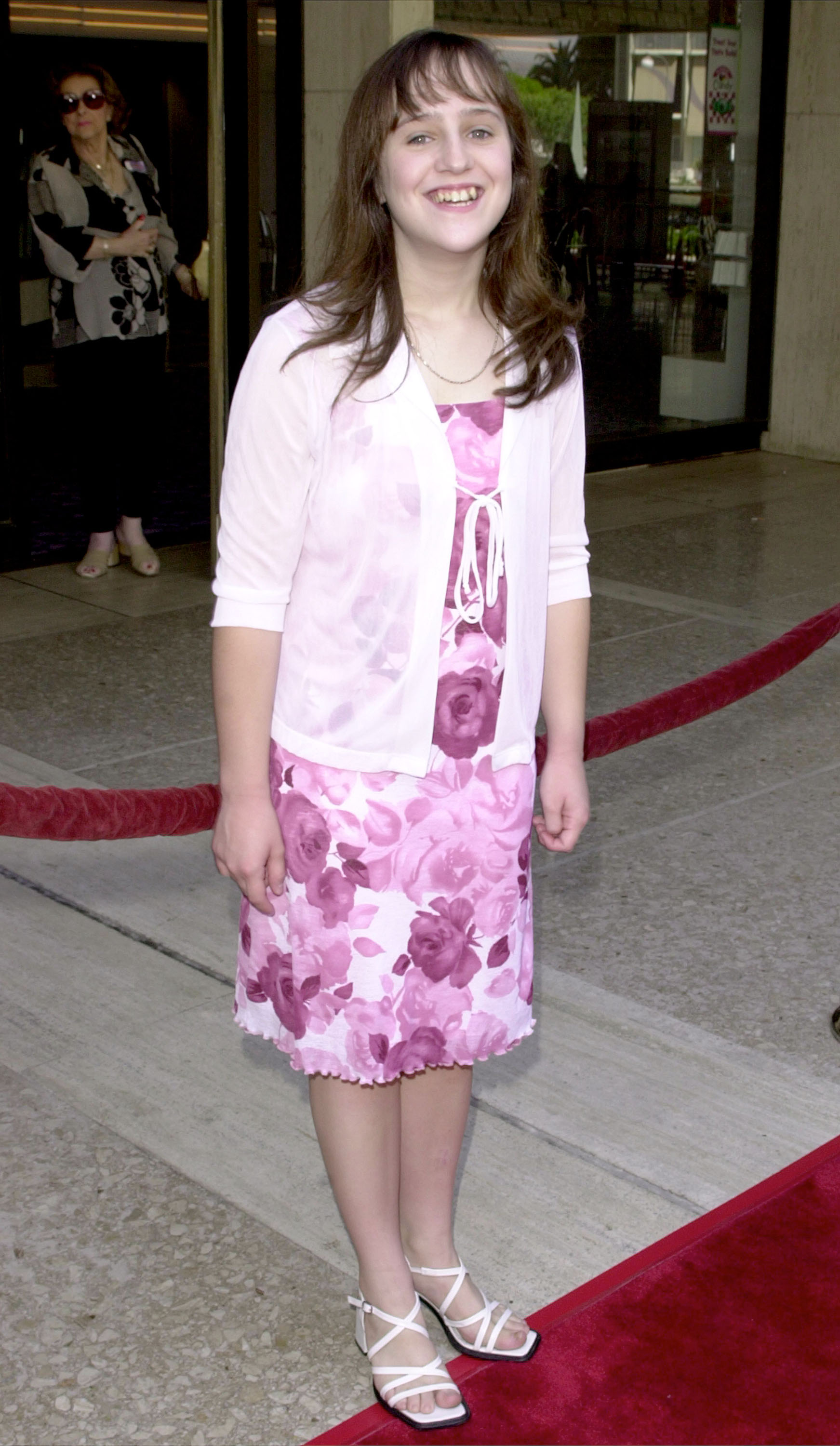
Mara Wilson arrives at the premiere of the movie “Thomas and The Magic Railroad,” in Los Angeles, on July 22, 2000 | Source: Getty Images
The sexualization Wilson faced came not from her co-workers but from people outside of work. It was so severe that her head was superimposed onto other girls’ bodies on porn sites.
Wilson also reflected on the immense pressure of constantly engaging with the press as a child, noting how it weighed heavily on her.
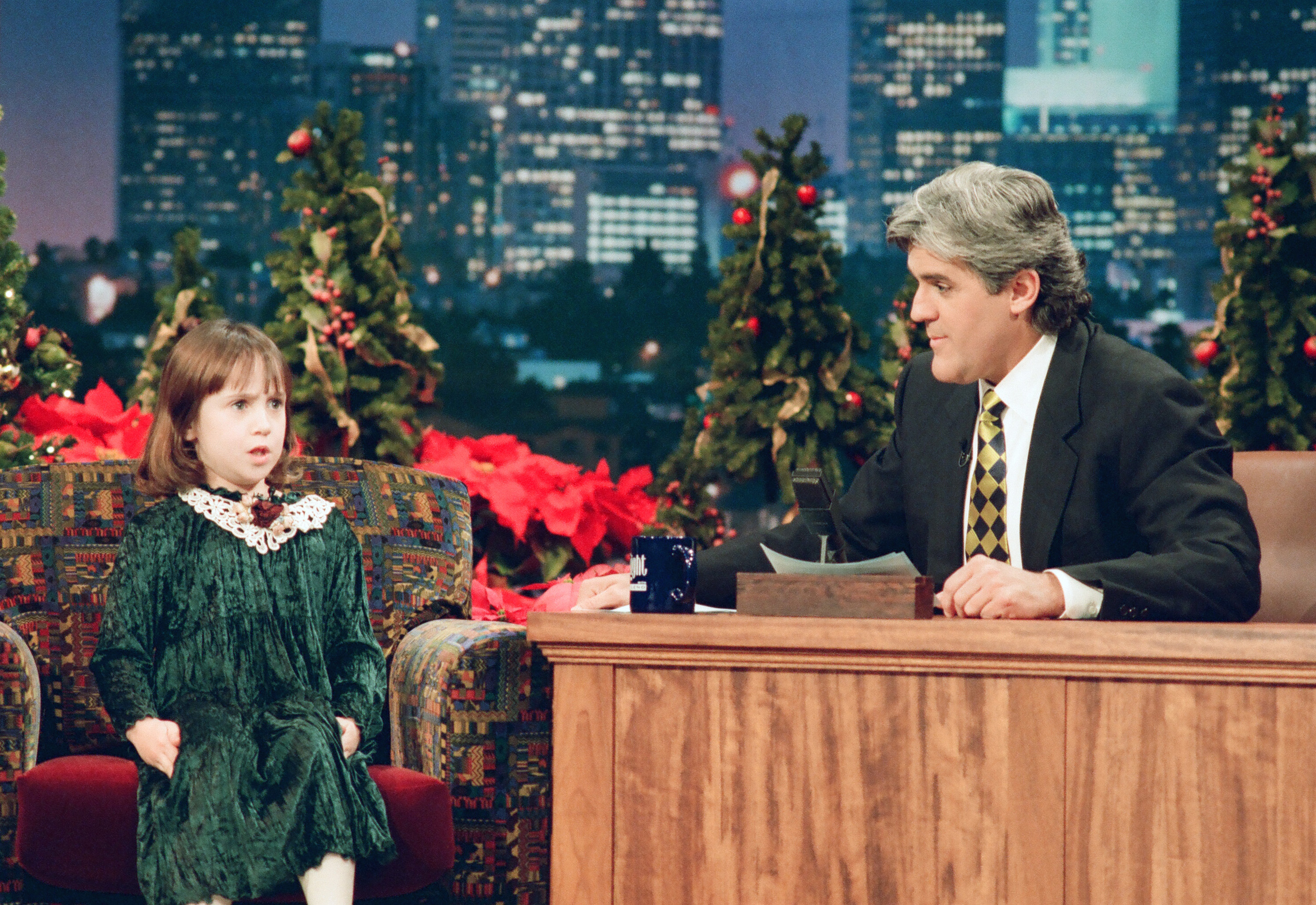
Mara Wilson during an interview with host Jay Leno on December 13, 1994. | Source: Getty Images
At just seven years old, she faced invasive questions from journalists about topics like French kissing and which actor she found sexiest. Additionally, as much as she appreciated having a fanbase, she felt that the constant scrutiny made it difficult to be herself in public.
She explained that there were times she struggled to keep it together, due to the emotional challenges of being a teenager and the loss of her mother.
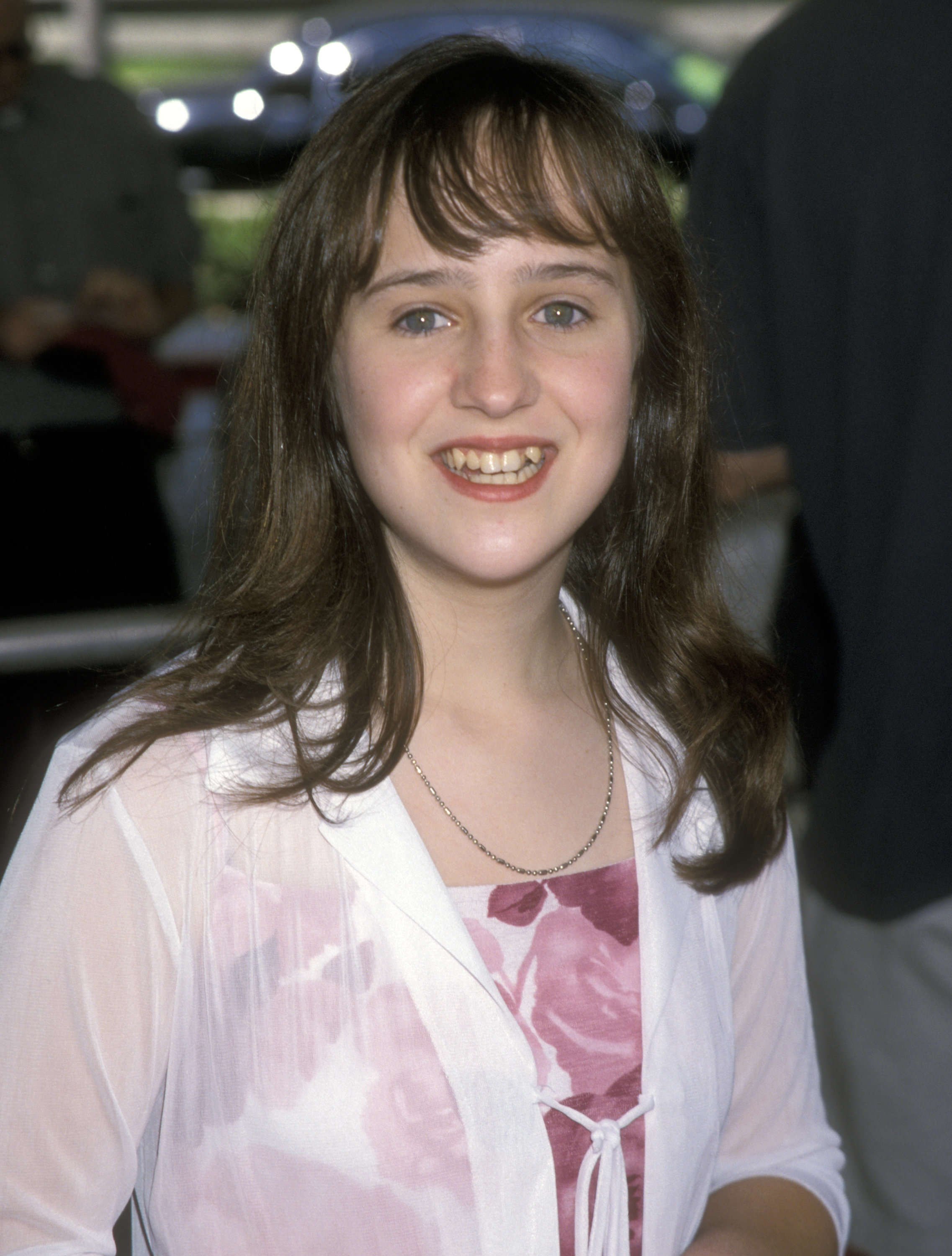
Mara Wilson arrives at the premiere of the movie “Thomas and The Magic Railroad,” in Los Angeles, on July 22, 2000 | Source: Getty Images
Wilson’s career began slowing down as she hit puberty, and Hollywood seemed to lose interest. When she was 12, a director asked her to wear a sports bra to flatten her developing breasts, as she was no longer considered cute.
“It affected me for a very long time because I had this Hollywood idea that if you’re not cute anymore, if you’re not beautiful, then you are worthless,” she admitted.
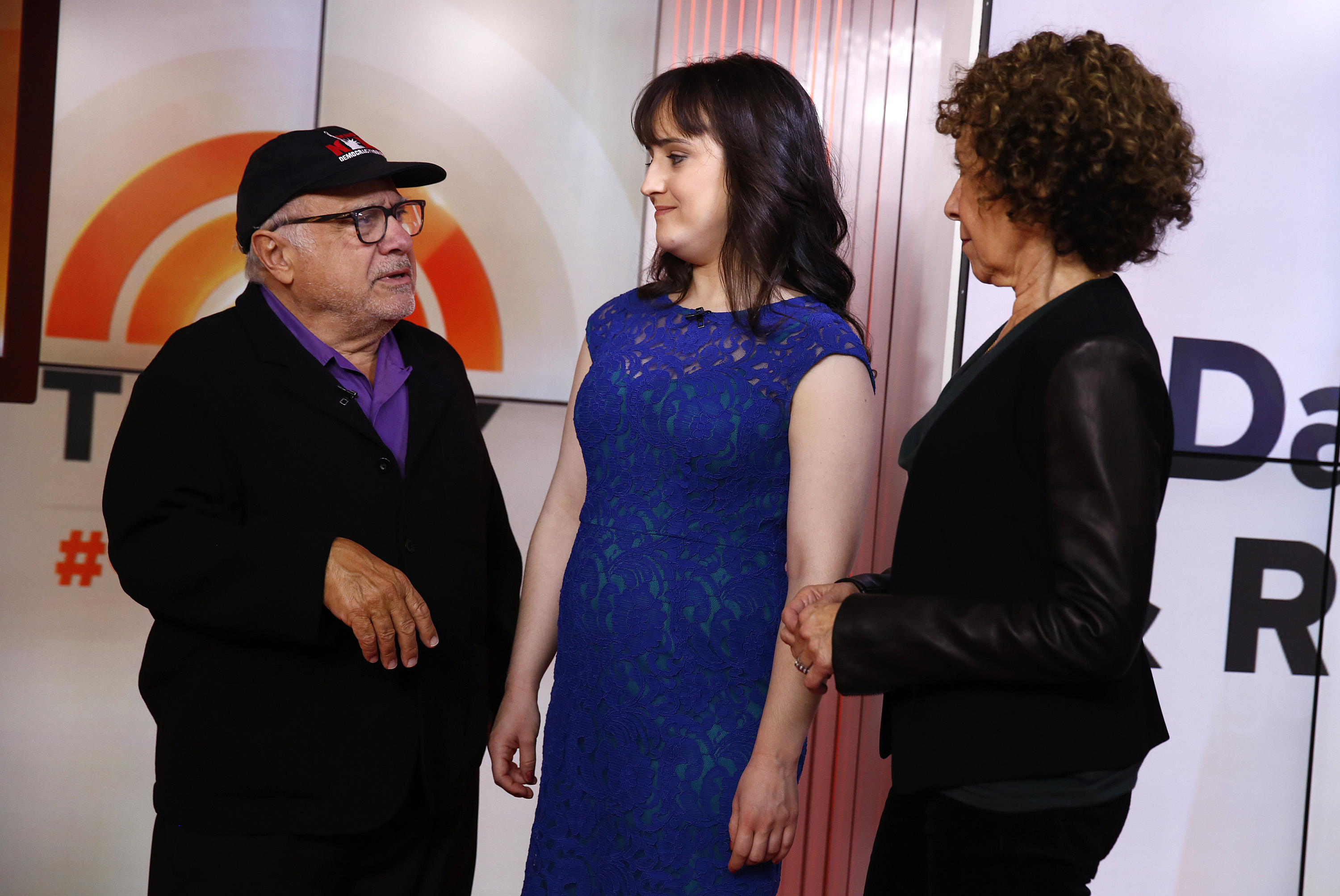
Danny Devito, Mara Wilson, and Rhea Perlman appear on NBC News’ “Today” show, on December 6, 2013 | Source: Getty Images
The actress linked the decline in her career to her changing appearance. She began comparing herself to peers like Scarlett Johansson and Keira Knightley and felt that she wouldn’t measure up.
“You have to look a certain way and I was starting to notice that at that point in my life, I didn’t. I didn’t have that Hollywood beauty,” she acknowledged.
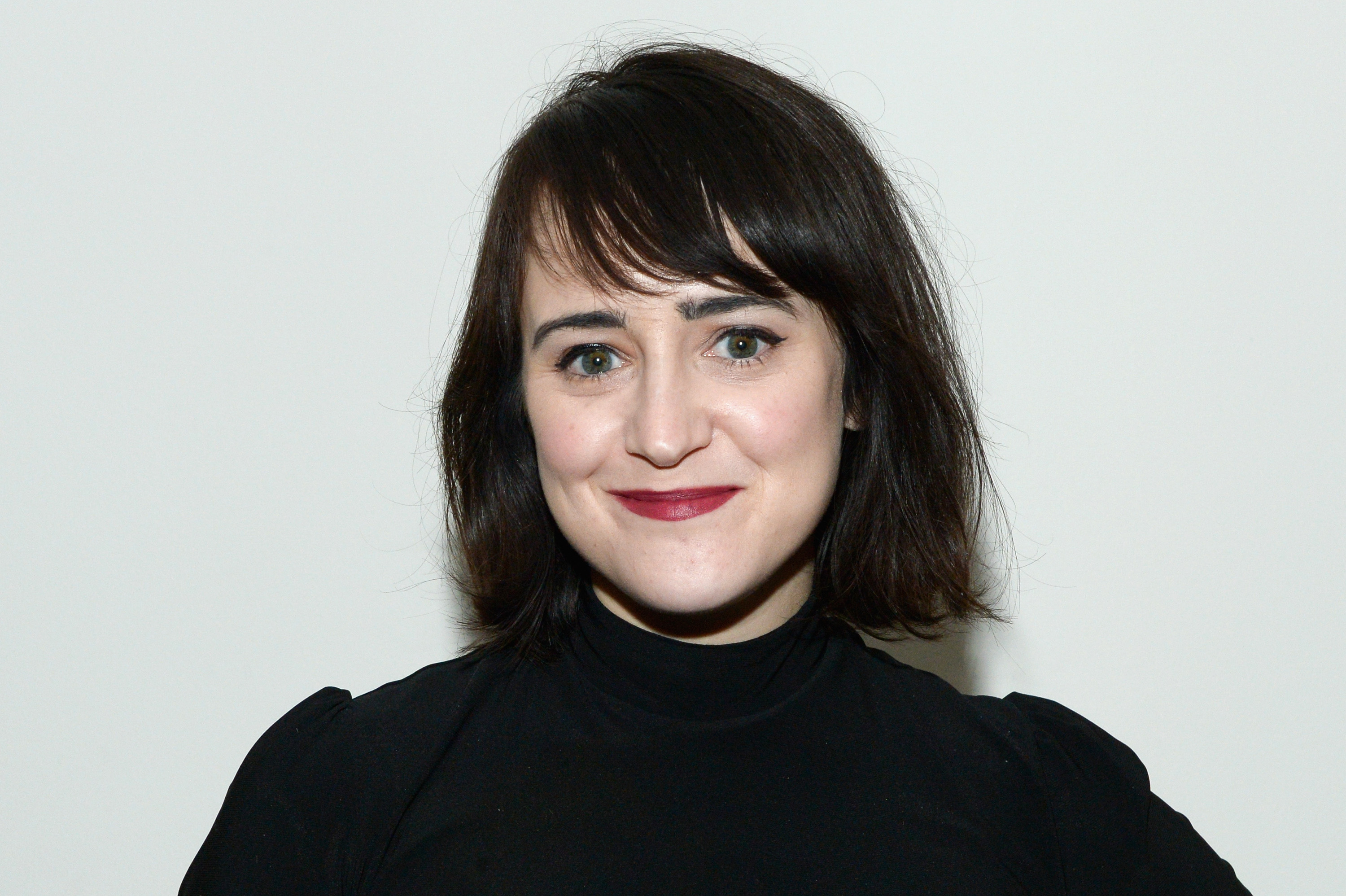
Mara Wilson attends The Secret Society Of The Sisterhood in Los Angeles, California, on January 31, 2018 | Source: Getty Images
At 29, she felt upset when people seemed disappointed that she didn’t look the way they expected. She felt rejected even though she was burnt out and Hollywood had moved on. This led to a long period of body dysmorphia and excessive obsession with her looks.
“You think, ‘I’m ugly, I’m fat’ – and there were actual websites and newspapers and movie reviewers saying that about me,” said Wilson.
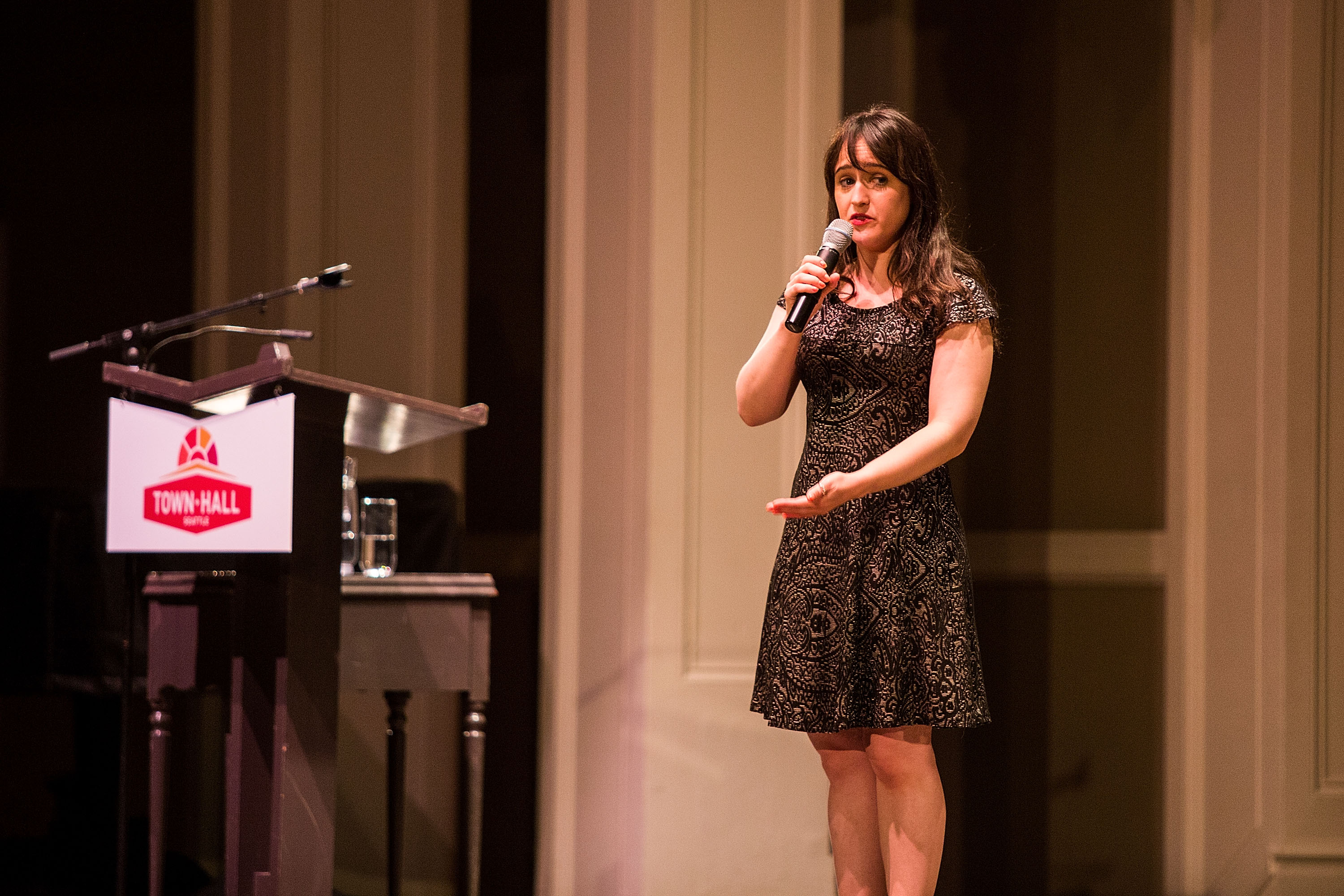
Mara Wilson speaks about her new book in Seattle, Washington, on September 21, 2016 | Source: Getty Images
Mara Wilson even thought of getting plastic surgery. Her thoughts were so intense that she wished she could get into an accident simply to get cosmetic surgery guilt-free.
Her boyfriend at that time told her to get plastic surgery if that was what she wanted. However, he added that she should know she was beautiful and that the main thing was for her to love herself.

Mara Wilson attends The Trevor Project’s 2018 TrevorLIVE LA Gala in Beverly Hills, California, on December 2, 2018 | Source: Getty Images
Still, Wilson became increasingly guarded, anxious, depressed, and cynical. This made it difficult to land roles, as auditions require openness. Aside from OCD, she was told that she possibly had post-traumatic stress disorder (PTSD).
She was also struggling with her sexuality, which she had tried to ignore, thinking it would add to her problems. Eventually, in 2016 she came out as bisexual.

Mara Wilson attends Lambda Legal West Coast Liberty Awards in Beverly Hills, California, on May 30, 2019 | Source: Getty Images
The actress then had obsessive thoughts about religion and the world, which caused significant stress. Her father suggested taking time off from acting, so she did.
This marked the end of the first stage of Wilson’s career. She attended a performing arts boarding school, funded by her earnings, where she developed a passion for writing and theatre.
Wilson later went to New York University and wrote about her mother’s death for the first time. While working as a barista and nanny, she feared being recognized and ending up in a ‘where-are-they-now?’ article.
She then considered a job in Los Angeles but avoided it, thinking people would recognize her. Wilson wanted to move past the idea of being pitied but still wondered if people would feel sorry for her.
Wilson mainly writes now. There was a previous memoir, “Where Am I Now? True Stories of Girlhood and Accidental Fame,” in 2016. In this book, she discusses the harsh realities of the movie business without letting emotions take over.
The actress said that she wanted to tell her own story and chart her own path. She felt sympathetic about many child actors as they go through a lot and later develop similar problems as hers.
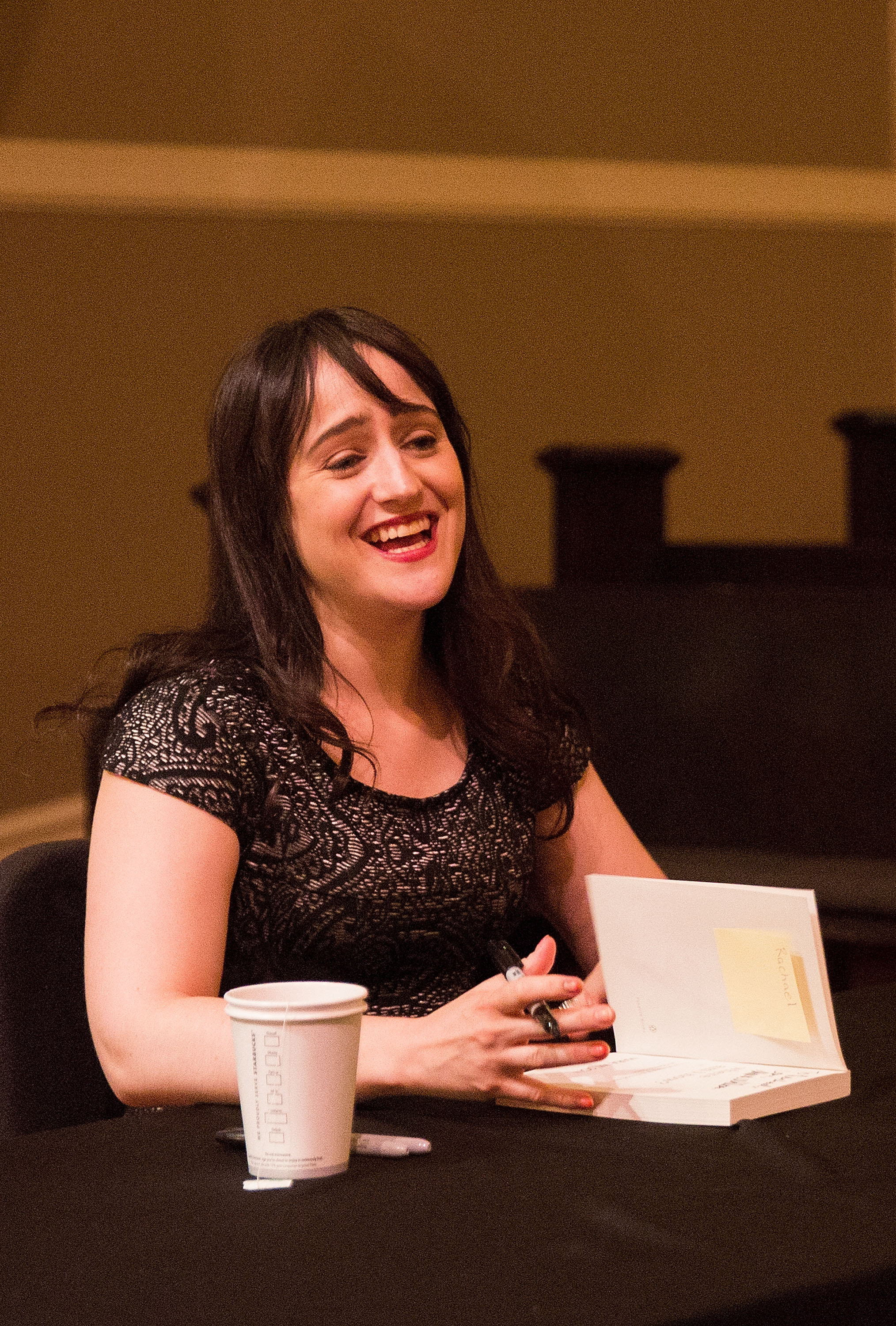
Mara Wilson signs copies of her new book in Seattle, Washington, on September 21, 2016. | Source: Getty Images
Regarding her post-puberty career options, she writes that she saw three choices. The first was to undergo cosmetic surgery for roles such as the cute and funny best friend. The second was to stick to her current appearance for minor character roles.
Her third choice was to accept herself and abandon the idea of a Hollywood acting career. She chose the third, mainly as a form of self-protection. “If I was going to break up with Hollywood. I wanted it to be mutual,” she wrote.
Now, the actress also does voice acting work including audiobooks and the fiction podcast “Welcome to Night Vale.” She’s not sure she would want to return to TV or film.
“I don’t know if they really know what to do with a short, curvy, Jewish brunette. I don’t want anybody telling me, ‘You need to lose 30 lbs and get a nose job,'” the actress said.
Wilson is also not interested in changing who she is. She shared, “I defined myself for so long by the media’s terms, by Hollywood’s terms, instead of defining myself by my own goals, my own relationships, my own life.”
Although Hollywood may not have embraced Wilson’s appearance, her fans on social media have shown immense support, loving and praising her for who she is.
One fan told her, “Have grown to become a very beautiful woman.” Another fan praised her beauty, “Beautiful as ever 😍❤️.” More fans concurred, saying, “You’re so pretty 😍❤️.”
Now, Wilson is focused on writing novels, hoping they will be published someday. She enjoys writing dialogue and is interested in writing for television. Her work will primarily focus on and be for young people.
